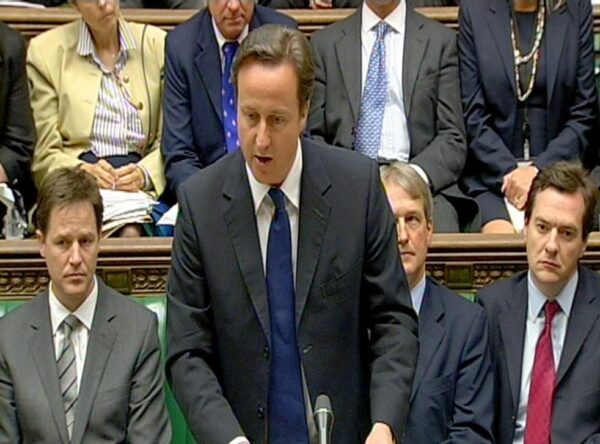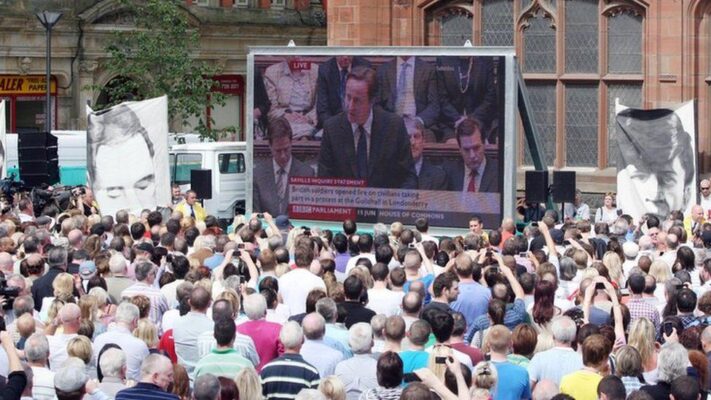
David Cameron delivering Bloody Sunday apology to MPs in 2010
When the Saville Inquiry was released in 2010, he apologised for the “unjustified and unjustifiable” deaths.
Thirteen people were shot dead when soldiers opened fire on civil rights demonstrators in Derry on January 30, 1972.
A 14th man later died of his injuries.
Ahead of the 50th anniversary, the ex-Conservative Party leader said he wanted to leave no doubt with a “proper apology”.
After reading the Saville Inquiry into the day’s events, he considered how he felt about what he had read, Mr Cameron told the BBC’s Talkback programme.
“It seemed to me that those words [unjustified and unjustifiable] best summed it up,” he said.
“You couldn’t leave any doubt.
“Unjustified and unjustifiable means let’s not go on arguing about this, what happened was wrong, full stop, end of and let’s make a proper apology.
“Sometimes with these sort of events politicians – and I can be guilty of this – qualify the apology or shade around the edges.
“On this occasion it needed to be absolutely direct and clear.”
Mr Cameron made the remarks in the House of Commons and said he was unsure how they would be received in Derry.
He added: “I remember watching the news later that day and being very moved by the scenes and understanding how much this had meant to people.”
Mr Cameron said he understood why the Bloody Sunday families continued to seek justice.

People packed Guildhall Square in 2010 to hear David Cameron’s apology over Bloody Sunday
“Then it’s really a double jeopardy, of having your relatives suffer in that and for so long not having a faithful account of what actually happened, and taking so long for the truth to come out and of course you understand why those people want not just the truth but the justice that should follow.”
Meanwhile, An Taoiseach Micheál Martin has said the events of Bloody Sunday were “indelibly imprinted” on the minds of “many families across the island of Ireland”.
On Sunday he will lay a wreath at a memorial service in Derry – the first serving taoiseach to do so.
“It was a huge turning point in some respects and remains on as an enduring injustice at the heart of the Northern Ireland Troubles,” Mr Martin told BBC Radio Foyle.
He paid tribute to the “persistence, dignity, and resilience” of the Bloody Sunday victims’ families, some of whom he will meet privately on Sunday.
He added: “The journey of justice was a long one, but I think it now stands as a monument in itself and an inspiration to others around the world.
“They got the truth, they got a state apology from the British prime minister and they got support from subsequent Irish governments but it went on too long”.
Politicians, he added, must learn from the past and save future generations from violence.
Tags:




